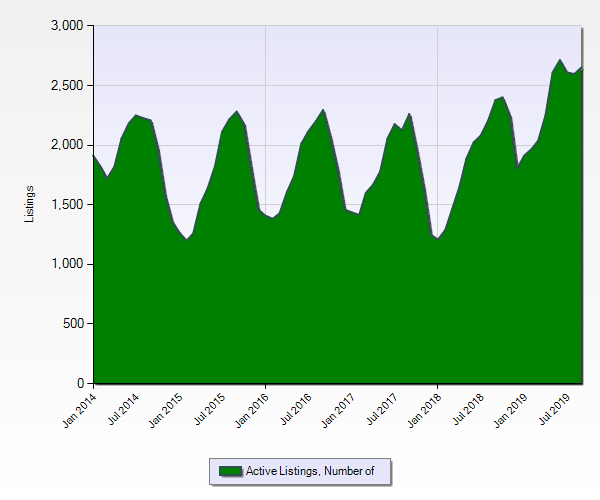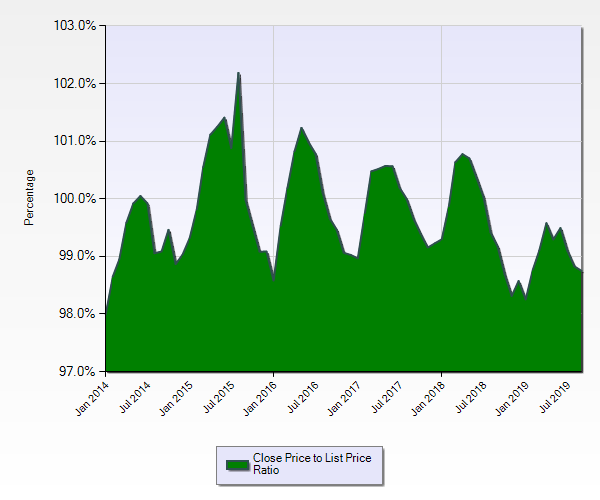
Thinking you might sell your home this year and questioning when is the best time to sell your home in 2020? Well, now! Home sellers will certainly have the advantage the first half of the year. While we focused on homebuyers last post , this post we put the spotlight on home sellers.
Let’s go back to this chart:

In this chart, the blue squares signify the seller’s opportunity. As you can imagine, where the homebuyers had the disadvantage, homes sellers have the advantage. The first row of the chart, “Active Count” shows how many homes are expected to be on the market month by month. January through April have the lowest amount of homes on the market, resulting in a higher demand for homes and thus driving up the prices. However, the active count doesn’t tick up to a high buyer’s advantage until July.
The other advantages that you have selling your home now is how quickly you will be able to sell it. Take a look at column 6, “Average Days on Market” and column 7, “Median Days on Market”. When you sell your home, you can expect to have it under contract and sold very quickly. In fact, column 8, shows that roughly 50% of home sellers that sell their home between April and June can expect it under contract in seven days or less!
Last but not least column 5, “% of Close/List Price”, shows that people that sell their home between April to June, can expect list price or a bit higher. This is because buyers will compete for you home increasing the sales price. 🙂
So, when is the best time to list your home? February to June is the best time to list your home. These months are truly the best months to sell a home as they result in a perfect scenario for home sellers. They can expect to receive top dollar for their home, go under contract quickly giving the home seller far more negotiating power than any other time of the year.
If you are a Denver home seller, feel free to reach out to Liz for a more detailed analysis of the current real estate market to find out when the best time to sell your home this year.
Liz is broker and owner of Liz Daigle Realty.






